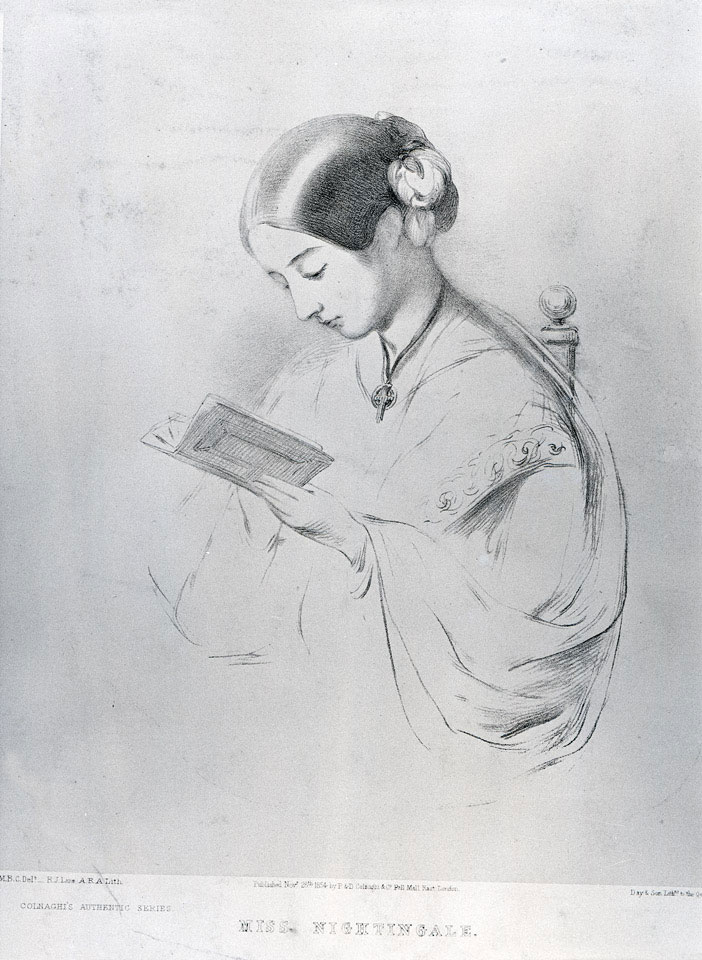
Online Collection
Florence Nightingale, 1854 (c)
Lithograph, Colnaghi's Authentic Series, published November 1854.
Born into a wealthy family, Florence Nightingale overcame the narrow opportunities offered to girls of her station and, despite the censure of her family in 1851 she completed a course of nursing training in Germany.
Following reports in 'The Times' of the soldiers' suffering in the Crimean War (1854-1856), Florence answered a government appeal for nurses and was appointed 'Superintendent of the Female Nurses in the Hospitals in the East'. Florence and her nurses improved medical and sanitary arrangements, set up food kitchens, washed linen and clothes, wrote home on behalf of the soldiers and introduced reading rooms.
Before Florence Nightingale nursing was not considered a respectable profession. With the exception of nuns, the women who worked as nurses were often ill trained and poorly disciplined. Most were working-class. Florence was determined to encourage educated, 'respectable' women into nursing. Her work in the Crimea set the standards for modern nursing and helped transform its public image. For the rest of her life she continued to campaign for improved sanitary conditions in both military and civilian hospitals.
NAM Accession Number
NAM. 1969-08-27-1
Copyright/Ownership
National Army Museum Copyright
Location
National Army Museum, Study collection
Object URL
https://collection.nam.ac.uk/detail.php?acc=1969-08-27-1

